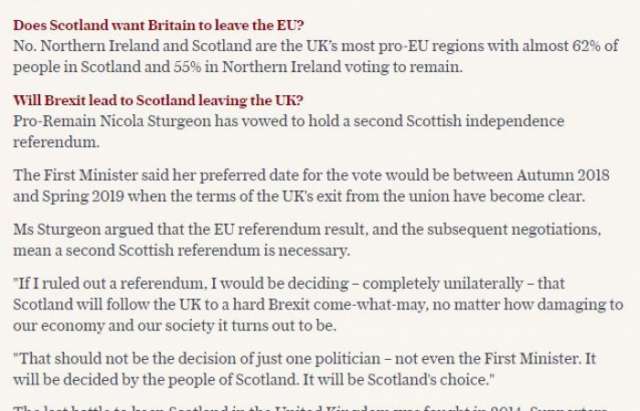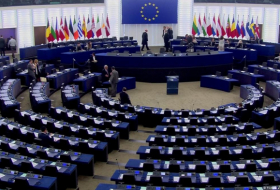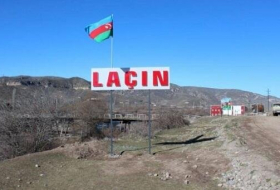There is, therefore, the prospect that within two years we will have left the EU and embarked upon the break-up of the United Kingdom. While the former would fulfil the decision taken by the people of the UK last June to end the 43-year relationship with Europe, the latter would rip apart more than 300 years of shared history on these islands.
It is just as likely, however, that the Scots, despite voting by almost two to one to remain in the EU, will decide that their future still lies with the United Kingdom. For what they are worth, opinion polls show a majority in Scotland against both conducting a referendum and independence should there be one.
However, things may look different in 18 months’ time if the Brexit negotiations are in trouble and there is a possibility of Britain leaving without an agreement.
At that point, the SNP may convince enough Scots to support separatism as a way of staying in the EU and its single market, assuming such an option was open to them. The future of the country, in other words, is bound up in achieving a deal that essentially gives UK goods and services easy access to the EU market, something that the Government is aiming to achieve.

For a politician who makes a virtue out of being straight-talking, Ms Sturgeon was being disingenuous. After all, she leads a separatist party whose raison d’etre is to bring about an independent Scotland. Brexit is incidental to this ambition; but it has given her the excuse to demand another referendum that the party’s leaders said in 2014 was a once-in-a-lifetime event. But while separatism may be a shared SNP endeavour, the party is split over EU membership: one third of its supporters voted to leave.
Moreover, this is not just a matter for the Scots. The UK Government must consent to a referendum – to the timing and the question. If the Holyrood parliament gives the First Minister the authority to proceed by issuing an order under Section 30 of the Scotland Act, the UK Government is unlikely to refuse. However, the question of when the referendum is to be held should not be a unilateral decision for Ms Sturgeon.
She has indicated her preferred window for the vote; but those dates are not acceptable because they risk derailing, or certainly confounding, the Brexit negotiations at their most critical stage. Scotland’s government can demand another vote on independence but it does not have the right to harm the prospects for the rest of the country in doing so.
Theresa May’s initial response was to denounce Ms Sturgeon for “playing politics”, which is undoubtedly the case. The SNP leader is very good at this game and needs to be faced down. However, the first response from No 10 was faltering. Instead of countering by promising to trigger Article 50 as soon as the Brexit Bill has passed through Parliament, the Government said this may not now happen until the end of the month.
Mrs May needs to play her hand as cannily as Ms Sturgeon plays hers. If she agrees to the referendum – and it is hard to see how she can’t – she must insist that it can only take place after the Brexit deal is concluded. This makes sense even on Ms Sturgeon’s own analysis. She said the Scots must have a vote when the outline of the exit terms are apparent. But they are unlikely to be clear until very late in the day because the EU is adamant that nothing is agreed until everything is agreed, a formula which the UK government intends to follow.
Staging a referendum on Scottish independence in the latter stages of these critical talks would run the risk of undermining them to the detriment of the rest of the UK. It would encourage the Commission negotiators to stall or limit the offer to Britain, even if the EU is not especially enthusiastic about a bespoke deal for Scotland.
Ms Sturgeon’s move is a gamble. There is no evidence that the Scots have changed their minds about staying in the UK despite the Brexit vote. And while much depends on the sort of agreement that is obtained, there is every reason to believe that a deal can be struck that is mutually beneficial to the EU and the UK, given goodwill on all sides. Ms Sturgeon’s démarche is designed to undermine that prospect by sowing division and confusion about the UK’s ultimate aims.
This newspaper is a consistent supporter of the 310-year-old union of the parliaments and of an independent United Kingdom. For 266 years before joining the Common Market we managed to have both. We can do so again.
/The Telegraph/
More about: #ScottishIndependence #referendum #NicolaSturgeon #Brexit #Article50
















































